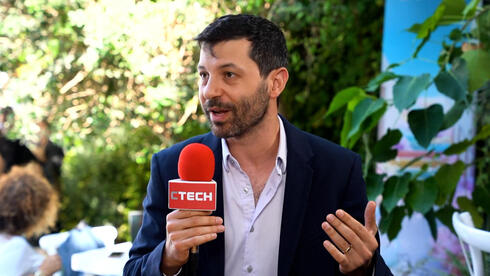
AI Conference
"The IDF was among the first militaries in the world to put AI into operational use"
Dr. Liran Antebi told the Calcalist AI Conference that during 2021’s Operation Guardian of the Walls, the IDF generated 200 quality targets in just 12 days, a process that once took a full year.
“Today, when we see the power of artificial intelligence, the question arises: is it a superweapon?” said Dr. Liran Antebi, VP of Strategy at Shifters AI and a senior researcher at Tel Aviv University, speaking at the Calcalist AI Conference held in collaboration with Vultr.
Antebi noted that this debate differs from the nuclear age, when the threat was kinetic and visible. Nuclear weapons, she said, locked the world into a state of mutual fear for decades, creating deterrence that prevented full-scale war. AI, by contrast, is diffuse, dual-use, and evolving rapidly.
Antebi has spent over 15 years studying the use of advanced technologies in warfare, working both with the IDF and with private technology companies. In 2013, she led a first-of-its-kind international project examining the use of unmanned vehicles. “Today, we know that every known mission can be performed using autonomous vehicles, and it is likely that in the future these vehicles will be deployed in swarms,” she said.
Israel, she emphasized, was among the first countries in the world to operationalize AI. “In 2021’s Operation Guardian of the Walls, the IDF revealed that it produced 200 quality targets in 12 days, something that previously required a full year. This shows the power of the capability,” she said. AI, she added, is already embedded in intelligence, command and control, and cyber warfare.
But lessons are also emerging from other conflicts. From the war in Ukraine, Antebi pointed to examples of creative improvisation using consumer technologies. She described one case in which drones were loaded onto a truck near an airport in Russia, released at a precise moment, and succeeded in destroying planes on the ground. “This shows us a successful combination of AI and human ingenuity,” she said.
AI’s reach, Antebi observed, is expanding across domains, at sea, in the air, and increasingly on land. Ground robots remain rare on battlefields, but she believes this is about to change. “There are two parallel trends: on the one hand, ground forces are eager to adopt such technologies, and on the other, robotic capabilities are making a leap forward. This leads to new forms of cooperation, arms races, and unconventional weaponry.”
As for whether AI should be considered a “superweapon,” Antebi’s answer was nuanced. “Yes and no. For now, humans still have an important role in adding value and integrating different systems. The real question is whether we will learn to use technology not only to win wars, but also to improve our lives.”















